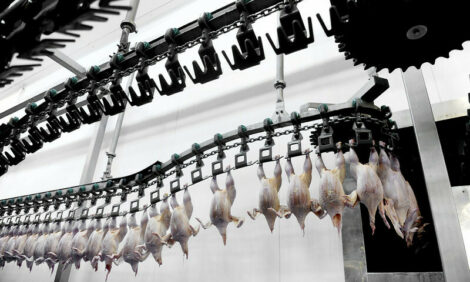



Farmgate pig prices influenced by complex global factors
The current state of the pig meat market highlighted in the latest market commentary from Quality Meat Scotland (QMS) shows the complexity of international red meat trade"While basic supply and demand will always be core drivers of the market place, international responses to disease outbreaks also have a significant effect," said Stuart Ashworth, Director of Economic Services at QMS.
"Trade disputes can also impact on both supply and international trade," he added.
Global consumption
Pig meat production in the European Union, including production in the UK, has been increasing over the last year and production in the first half of 2018 was nearly 4 percent higher than last year.
"Given this increase in supply, it is perhaps unsurprising that European producer prices for prime pigs have been running lower than 2017 levels throughout the year and are currently 7-8 percent lower than a year ago. Scottish producers are similarly seeing farmgate prices around seven percent lower than last year," commented Mr Ashworth.
The response by pig producers to this lower price profile is to trim back productive capacity and the mid 2018 census results from across Europe point towards a one percent reduction in the breeding herd and a seven percent reduction in gilts intended for future breeding.
"Latest census results from Scotland and England also show small declines in the size of the breeding herd, although there has been growth in gilts intended for future breeding in Scotland which would suggest the decline in Scottish sow numbers may be at an end," said Mr Ashworth.
However, he stressed that it may well be into 2019 before this reduced breeding herd across Europe leads to reduced slaughter numbers, as previous growth in production has to complete its production cycle.
"June census results from England and Scotland also suggest that short term supplies of pig meat are likely to begin to tighten up through the autumn. European production may take a little longer to turn down as the consolidated mid-year census result across Europe showed growth in the number of fattening pigs on farms," he said.
Domestic consumption
Meanwhile, domestic consumption of pork continues to struggle to match last year’s levels despite these lower prices; although sales of processed pork products, for example bacon, cooked ham, sausages and ready meals, have been a little firmer.
Mr Ashworth pointed out that overlying the domestic market is the importance of international trade to European pig producers. Around 17 percent of EU pig meat is exported; with China taking around 35 percent of all exports and disruptions to international trade can quickly impact on producer prices.
"In 2016 we saw EU exports to China surge 86 percent, raising EU farmgate pig prices significantly in the second half of that year when the farmgate price saw an average year on year increase of 15 percent between July and December 2017," he said.
The actions of other countries can have a profound effect on the global market said Mr Ashworth. Russia has banned EU pig meat imports for an extended period and have also banned imports of Brazilian pig meat over concerns about the use of feed additives, leaving Brazil looking for alternative markets including China and increasing competition. China has also recently increased tariff rates on US pork potentially displacing US pig meat onto a global market.
Meanwhile the presence of African swine fever (ASF) - a disease that has serious impacts on pig productivity but is not a risk to human health - in several EU member states has resulted in some markets excluding all or part of EU pig meat from their market to reduce the risk of transmission of ASF to their domestic pig herds.
Although China has been reporting many ASF cases of its own, it has restricted imports from parts of Europe affected by ASF, most recently Belgium, and so during 2018, EU pig meat exports to China have reduced.
"The changing dynamics of international trade due to a combination of animal health protection and wider trade disputes will have contributed to the pressures seen on the wider European farmgate pig price," concluded Mr Ashworth.






